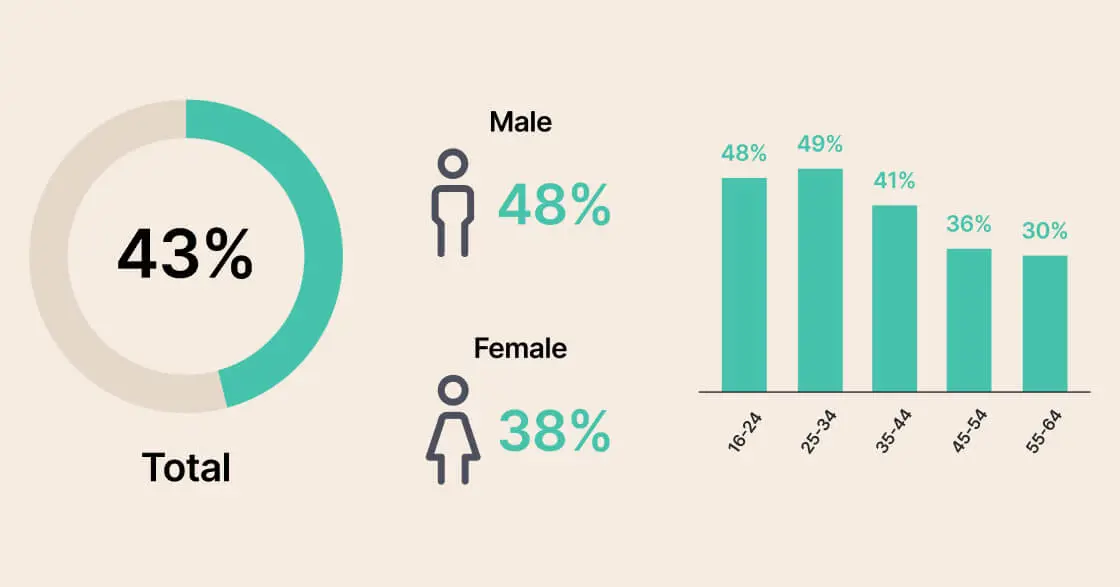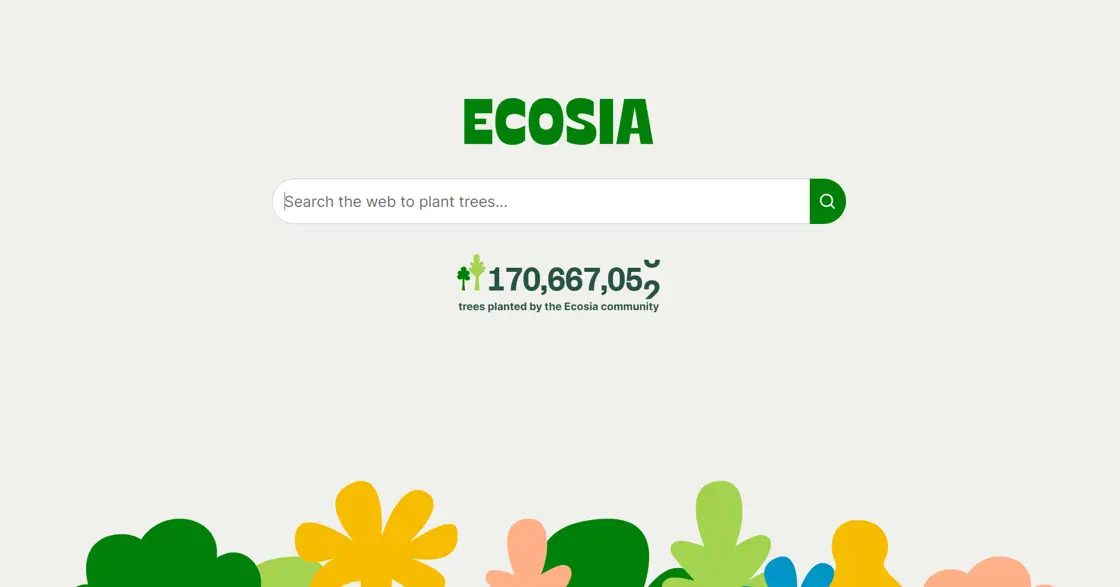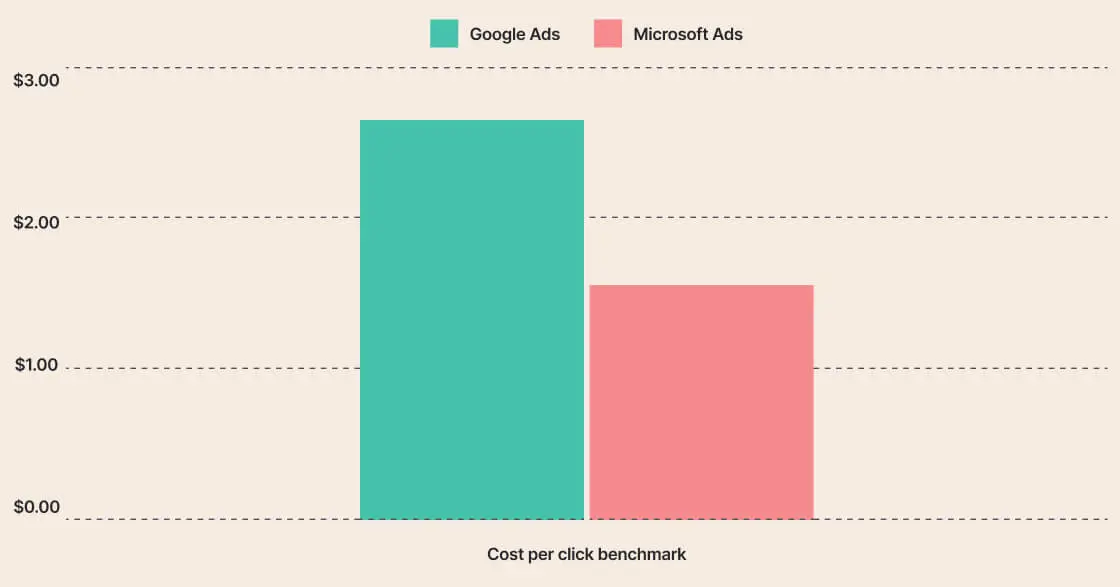How emerging search engine trends are shaping paid search advertising

Privacy matters: Why users are switching to privacy-focused search engines.
Canva, Optus, and the Australian National University. We are in an age of data breaches and privacy violations, which unfortunately have become more commonplace in recent years. Unsurprisingly, this has led to an increasing demand for search engines that prioritise privacy and protect users' personal information. This trend is not limited to a particular demographic, but an ongoing trend with millions of users worldwide setting their sights on privacy-focused search engines to answer their queries.
Key Takeaways.
- Growing concerns around online privacy have resulted in increasing levels of demand for privacy focused search engines like Duck Duck Go.
- Increasing environmental concerns has seen demand for environmentally focused search engine Ecosia grow.
- Microsoft Ads allow you to reach these search users, at a much lower cost per click.
- Whilst Google Ads is a clear number one, diversifying your approach with Microsoft Ads should be considered.
If you're like me, you may have noticed an increase in the publicity surrounding online privacy concerns. You are not alone; there is a growing global awareness of these issues. Users are becoming more aware of how search engines and online platforms collect their data and, more importantly, what is being done with it. As a result, there has been a rise in the usage of encrypted communication tools and privacy-focused search engines to protect personal online privacy.
DuckDuckGo, the market leader among privacy-focused search engines, has experienced significant traffic growth in recent years and now boasts over 98 million search queries per day. The demand for these search engines is not only reflected in user statistics but also in market projections, with Statista projecting that market share will only grow due to its privacy first policy.
Users are increasingly concerned about their online privacy, and the demand for search engines that prioritise privacy is likely to continue on its current growth trajectory. Regardless of whether mainstream search engines integrate privacy-related features, it is clear that these search engines are here to stay and that privacy is becoming an increasingly important factor.
The emergence of ad-free search engines and its impact on search engine marketing
The use of ad blockers has increased in recent years, reflecting the growing concern surrounding online advertising and privacy. Statistics suggest that this has led to a high demand for ad-free search engines.
Users are willing to pay for ad-free search, which has only fueled the existing demand for ad-free search. According to the Global Web Index, nearly half of internet users aged between 16 and 64 would prefer to use an ad-free engine. This demand is not limited to a specific demographic, as indicated by the growth in ad blocker usage according to a study by eMarketer. The growth in traffic of StartPage, a popular ad-free search engine with over 5 million monthly active users according to SimilarWeb, is a reflection of this demand.
As users become increasingly concerned about their personal information being shared for advertising purposes, it is likely that the demand for private, ad-free search will continue to grow. However, the penetration of ad-free search engines is not significant enough to cast doubts on the viability of paid search strategies moving forward.
How environmentally conscious search engines benefit users and the planet
Demand is also growing for environmentally conscious search engines, and Ecosia is one such search engine that plants trees with its ad revenue. Ecosia has planted over 160 million trees, and this number is rising daily.
According to SimilarWeb, Ecosia has grown steadily over time and now has over 15 million active users per month, with its largest growth period being in 2019, recording 40% year-on-year growth. The eMarketer reports that this growth period was not a flash in the pan, suggesting that the volume of monthly users is growing steadily, particularly among younger audiences who are traditionally more likely to prioritise the environment, additionally putting pressure on legislators to end the “hoarding of default positions” on web browsers by Google.
Ecosia is not only attempting to help the environment, but it is also helping the well-being of its users. According to a study in the International Journal of Innovation Management, Ecosia users connects on a personal and emotional level with users, leading to a positive sentiment and a greater sense of connectedness with nature, additionally, University of Exeter students followed the lead of Sussex University by creating a Ecosia on Exeter campaign.
As users seek ways to make a positive impact on the environment in all their activities, including online activity, the demand for environmentally conscious search engines will only continue to grow. Ecosia's unique approach of spending its ad revenue on tree planting resonates with users who seek sustainable and socially responsible technology.
Implications of privacy and environment on search engine marketing
No matter what benefits advertising on other platforms may offer, the largest demand will still be on the Google Search Network for the foreseeable future. This means that abandoning your Google Search campaigns is not an option until the market share shifts.
While trends may lean towards growth in privacy-focused, ad-free, and environmentally conscious search engines, Google's stronghold remains, as evidenced by StatCounter data. Google currently holds 88.25% of the global search engine market and 95.45% of Australia's. In comparison, Google's closest competitor, Bing, has captured 2.98% globally and 3.15% in Australia. This data suggests that while exploring other search engines for advertising purposes is beneficial and recommended, abandoning Google Ads entirely is not a viable decision until the market shifts dramatically.
Online privacy, ad-free search, and environmentalism issues are only growing in importance, with search engines that factor these issues into their value proposition starting to gain traction in recent years. This is particularly evidenced by the growth of DuckDuckGo, which now has over 3 billion monthly searches and 6 million monthly downloads.
However, for search advertisers, this might sound like the "adpocalypse." Some may be concerned about the loss of data and what it means to reach audiences through a privacy-focused search engine like DuckDuckGo or a smaller, more eco-friendly engine like Ecosia. But there's good news: Microsoft Ads offers an excellent alternative.
Microsoft Ads allows you to target your non-Google audience by advertising on four of the top five non-Google search engines, including Bing, Yahoo, DuckDuckGo, Ecosia, and more. Microsoft Ads is also a cost-effective solution, with Wordstream estimating that the average cost per click for Microsoft Ads is significantly cheaper per click (at $1.54) compared to Google Ads ($2.69). This is further supported by case studies of businesses using Microsoft Ads to target Ecosia users, in which some businesses have quoted that the Microsoft Ads CPC was 50% or even 3-4x lower than what they achieved on Google Ads.
Final thoughts
As concerns over privacy and the environment become more prominent, the demand for search engines that address these issues is expected to continue to grow. Fortunately, you can still reach these users when they are searching with high intent through Microsoft Ads. To meet your target audience on non-Google search engines, it's worth considering increasing and diversifying your paid search budget to include Microsoft Ads alongside your existing Google activity. A trial of an additional 10-20% of your current Google Ads budget over a few months can often provide an indication of whether or not Microsoft Ads is a viable long-term channel for your business. Spoiler alert: there's a good chance it is.
Contact us today to learn more about this approach and how it can drive performance for your organisation.






